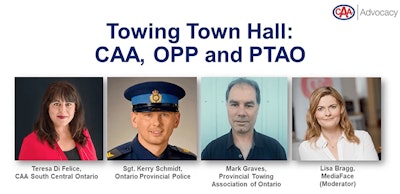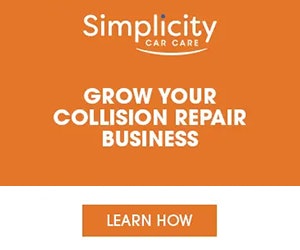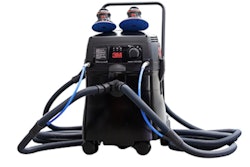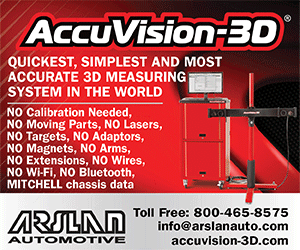
Toronto, Ontario — Susan Rosenburg once said “it’s not enough just to punish and to hold people accountable for what’s done. It’s to set down procedures so it can’t happen again.”
This quote really pertains to Ontario’s towing industry and this concept was discussed heavily in the Towing Town Hall webinar held on Aug. 12.
In the webinar, held by CAA, panelists from the Ontario Provincial Police (OPP), the Provincial Towing Association of Ontario (PTAO) and CAA discussed ways to not only hold the ‘bad apples’ within the towing industry accountable but the ways in which to prevent this fraudulent behaviour from continuing.
The online event kicked off with a presentation from Teresa Di Felice, from CAA South Central Ontario. Felice discussed the current problems facing the towing industry in Ontario, consumers behaviours and beliefs about the industry, why reform is needed, and also revealed a proposed framework of regulations for Ontario tow truck drivers.
She explained that currently the towing industry is plagued with a wide array of challenges, including municipal inconsistencies, enforcement inconsistencies, business model challenges, traffic incident management, chasing, fraud, competition, unsafe roadside conditions, and many more.
With all these issues at hand, all parties involved would benefit from some form over provincial oversight, she said. Adding that the stakeholders involved want to see more consistency across communities, effective incident management, centralized oversight, a proactive multi stakeholder engagement, as well as safe and professional tow truck drivers.
The framework of rules and regulation she proposed for the towing industry is a province-wide process for enforcement, which would monitor those in the industry, handle complaints and create as well as enforce regulations.
Although the proposed framework would be province wide, Di Felice says it will take note of the municipal and regional differences within the towing industry.
“There is a difference between towing in the GTA and Northern Ontario, so, you don’t want to create a one-size-fits-all regulation that only looks at problems that people predominantly hear about in one community and not another.”
The second video presentation in the Towing Town Hall was conducted by Sgt. Kerry Schmidt, Ontario Provincial Police.
Schmidt discussed some best practices motorists can do when calling for a tow, as well as some laws and regulations people may not be aware of within the towing truck industry.
The first call you should make when you get into an accident or are stuck on the side is to your insurance provider, says Schmidt.
He suggests you let them know what has happened then proceed to ask if they can suggest any tow truck drivers in the area.
Another thing he warned participants about is tow truck drivers who arrive on scene without being directly contacted.
“What a lot of people don’t understand is that the solicitation of a tow truck on the side of the road is prohibited by law, under the Highway Traffic Act. A tow truck driver cannot approach someone who has been involved in a collision and solicit their business and their services.”
He said motorists should also be wary of signing documents and of tow truck drivers who claim they have an OPP contract.
“When they’re talking about an OPP contract tow price, that doesn’t mean anything in terms of law enforcement. We don’t set rates, we don’t set standards—it is a competitive process out there, a competitive industry but the only time a contracted tow is where there may be an impound.” he said. “They are all independent businesses and we do not have contracts with any towing companies at all.
He also addressed that just because a tow truck driver is licensed in a municipality does not mean it is provincially.
The bylaws that apply in the municipalities do not apply across the provincial and “do not apply on provincial highway,” said Sgt. Schmidt.
The webinar concluded with a presentation from Mark Graves, Provincial Towing Association of Ontario (PTAO). Graves discussed some of the initiatives the PTAO has spearheaded to help reform the industry and why reform is necessary.
“Right now, somebody can go out and buy a $5,000 tow truck, and literally the next day be out working for the police. There’s no background checks required, no equipment requirements, no training requirements, it’s sad but it’s true,” said Graves.
He explained that basically every professional association has someone to answer to, but the towing industry does not at this point in time, which is why the PTAO has been working towards obtaining provincial licensing.
“One of the first things the PTAO set out to do was to define the true meaning of what a tow truck is. One would assume that this is pretty simple but it’s actually a lot more complicated and in- depth then you would ever think. In the current highway traffic act a tow truck is defined as a vehicle that tows another vehicle.” “So, if you got a Chevy Chevette with a piece of nylon rope towing another car down the highway, not only is it legal—it’s a tow truck. It’s that simple.”
Graves showed audience members pictures of what the PTAO defines as a tow truck and what it does not. He says many trucks operating on are and should not be considered legal tow trucks.
When asked by an audience member whether the tow industry wants to reform Graves said, “the industry is not only ready for this, but they know it’s needed.”
To learn more about how you can help reform the towing industry in Ontario, click here.










.xKbPTepSjX.png?ar=16%3A9&auto=format%2Ccompress&fit=crop&h=135&q=70&w=240)











